7 Essential Apps Every Ecommerce Store Needs


Running an ecommerce store today involves more than listing products and processing orders. From managing customer conversations to running marketing campaigns and encouraging repeat purchases, the right apps help stores grow while keeping everyday operations organised.
As ecommerce businesses expand, tools play a direct role in how efficiently teams handle support, convert visitors, and build long-term customer relationships. Choosing apps that work well together makes it easier to scale without adding unnecessary complexity.
This blog covers 7 ecommerce apps that matter in 2026, selected across key areas such as AI chatbots, SEO, customer management, email marketing, and automation. These tools are well suited for Shopify, WooCommerce, and DTC brands looking to improve conversions, support customers faster, and strengthen retention.
We begin with an AI chatbot designed to support sales and customer service around the clock while keeping human teams focused on higher-value work.
An ecommerce app is a tool that adds specific functionality to your online store. Instead of rebuilding features from scratch, apps help you handle tasks like customer support, marketing, search optimisation, order updates, and post-purchase communication.
Most ecommerce apps integrate directly with platforms such as Shopify or WooCommerce. This means they work inside your existing store setup and share data automatically. Orders, customers, products, and conversations stay connected, so your team does not need to switch between multiple systems to get work done.
In practical terms, ecommerce apps turn your store into a complete operating system, not just a place to list products.
Running an online store involves constant decision-making across sales, support, and operations. Ecommerce apps help simplify this by removing manual work and improving how your store responds to customers at every stage.
Here’s how they make a real difference:
Using a secure password manager is another essential tool that helps protect your store’s backend and customer data from unauthorised access.
A good-looking store isn’t enough. To grow consistently, you need tools that improve customer experience and brand visibility, automate operations, and help convert more visitors into buyers.
Here are 7 e-commerce apps used by successful stores across support, marketing, design, and analytics.

YourGPT is an AI-first platform designed to help businesses manage customer support, sales conversations, and operational workflows using AI agents trained on their own data. It is built for teams that want automation without relying on rigid, flow-based bots.
The platform combines a no-code AI agent builder, a unified inbox for multi-channel conversations, and smooth AI-to-human handoff. This allows businesses to automate repetitive queries while keeping full control over complex or sensitive conversations. YourGPT supports website chat and popular messaging channels and can be integrated into ecommerce and internal systems to keep conversations and actions connected.
Ratings: 4.7/5 ⭐
Pricing: Starts at $59/month with a 7-day free trial (no credit card required)
Discover how YourGPT AI chatbot can streamline your customer service

Ahrefs is an SEO and digital marketing platform used by businesses to improve search visibility, track competitors, and grow organic traffic. It is primarily designed for keyword research, backlink analysis, site audits, and content performance tracking.
For ecommerce stores, Ahrefs helps teams understand how customers search, identify ranking opportunities, and fix technical SEO issues that impact traffic and conversions. It is widely used by marketers, SEO professionals, and growth teams who rely on organic search as a long-term acquisition channel.
2. Competitor Analysis : Understand which keywords and pages drive traffic to competing ecommerce stores and spot gaps you can target.
3. Backlink Monitoring : Track backlinks to your store and competitors to support authority building and off-page SEO strategies.
4. Technical SEO Audits : Find crawl errors, broken links, duplicate content, and performance issues that can limit rankings and visibility.
5. Content and SEO Strategy Support : Plan blog content, buying guides, and landing pages based on real search data rather than assumptions.
Ratings: 4.5/5 ⭐
Pricing: plans start at $129/month.

HubSpot CRM is a customer relationship management platform designed to help businesses track leads, manage customer interactions, and organise sales and marketing data in one place. It is commonly used by ecommerce teams to centralise contacts, monitor customer activity, and support follow-ups across sales and support workflows.
For ecommerce stores, HubSpot CRM helps connect marketing efforts with sales and customer data, making it easier to understand where leads come from, how customers interact with the brand, and when to engage them with the right message.
Ratings: 4.4/5 ⭐
Pricing: A free plan is available; paid plans start at $50/month.

Instafeed is an ecommerce app that lets stores display Instagram content directly on their website. It is commonly used to showcase user-generated content, highlight products in real-world use, and make social proof part of the shopping experience.
For ecommerce brands, Instafeed helps bridge the gap between Instagram and the store. Instead of sending visitors away to social platforms, brands can bring curated Instagram posts, reels, and tagged content into product pages, homepages, or landing pages.
1. Bring Social Content Into the Store : Instafeed lets you display Instagram posts directly on your website, helping turn social content into part of the shopping experience instead of keeping it separate.
2. Keep Your Site Fast : The app is lightweight and designed to load efficiently, so adding Instagram feeds does not slow down your store or affect page performance.
3. Reduce Friction in Buying Decisions : Customers often rely on social proof before purchasing. Showing real posts and tagged products helps shoppers feel more confident about what they are buying.
4. Increase Brand Visibility and Engagement : Featuring Instagram content on product and landing pages keeps visitors engaged longer and reinforces brand presence.
5. Reliable Support When Needed : Instafeed is known for responsive customer support, which helps store owners resolve setup or display issues quickly without technical hassle.
Ratings: 4.5/5 ⭐
Pricing: A free plan is available; paid plans start at $6/month.

Klaviyo is an email and SMS marketing platform built specifically for ecommerce businesses. It helps brands use customer data and behaviour to send timely, relevant messages that support conversions and repeat purchases.
For ecommerce stores, Klaviyo connects directly with platforms like Shopify and WooCommerce to track browsing behaviour, purchase history, and engagement signals. This allows teams to create personalised campaigns and automated flows that respond to how customers actually interact with the store.
1. Personalised Campaigns at Scale : Send emails and SMS messages based on real customer behaviour such as browsing, purchases, and engagement, instead of relying on generic lists. This helps messages stay relevant as your store grows.
2. Automated Revenue-Focused Flows : Use proven workflows like abandoned cart reminders, welcome series, and post-purchase follow-ups to support conversions without manual effort.
3. Unified Email and SMS Management : Run email and SMS campaigns from one platform, making it easier to maintain consistent messaging and timing across channels.
4. Clear Performance Insights : Track key metrics such as opens, clicks, conversions, and revenue attribution to understand which campaigns contribute most to sales and retention.
Ratings: 4.1/5 ⭐
Pricing: A free plan is available; paid plans start at $15/month for SMS and $30/month for email.

Shogun is a visual page builder designed for ecommerce stores that want more control over their storefront design without relying on custom development. It allows teams to create and optimise landing pages, product pages, and promotional content using a drag-and-drop editor.
For ecommerce businesses, Shogun helps speed up page creation, test layouts, and improve conversion-focused design elements without editing theme code. It is commonly used by teams that want flexibility in design while keeping site structure intact.
1. Improve Store Design Without Code : Shogun gives you more control over layouts and content, helping you improve how product and landing pages look without editing theme files.
2. Create Better Shopping Experiences : Well-structured pages make it easier for visitors to find information, understand products, and move toward purchase.
3. Easy Page Creation for Non-Technical Teams : The drag-and-drop editor allows marketing and ecommerce teams to build and update pages quickly, without relying on developers.
4. Flexible for Different Use Cases : Shogun works well for landing pages, product detail pages, collections, and promotional campaigns, making it adaptable as store needs change.
5. Support Conversion-Focused Design : By testing layouts and refining page structure, teams can improve page performance and conversion rates over time.
Ratings: 4.3/5 ⭐
Pricing: Free trial available; paid plans start at $39/month.

Judge.me is an ecommerce app that helps stores collect, manage, and display customer reviews. It focuses on building trust by showing real feedback directly on product pages, collection pages, and throughout the buying journey.
For ecommerce stores, reviews reduce hesitation, answer common buyer questions, and help customers make confident purchase decisions.
1. Automated Review Collection : Automatically sends post-purchase review request emails, helping stores collect feedback consistently without manual follow-ups.
2. Visible Social Proof : Displays star ratings, written reviews, and testimonials on key pages where customers decide to buy.
3. Supports Buying Decisions : Reviews help shoppers compare products and feel more confident, especially when purchasing for the first time.
4. Encourages Brand Advocacy : Customers who leave reviews often become repeat buyers and advocates for the brand.
5. Builds Long-Term Trust : A steady flow of authentic reviews strengthens credibility as your store grows.
Ratings: 4.7/5 ⭐
Pricing: A free plan is available; paid plans start at $15/month.
Every ecommerce business has different needs. A store selling digital products will rely on different ai tools than one handling physical inventory and high order volumes. The goal is not to install more apps, but to choose the ones that solve real problems.
Before adding any app to your store, start by identifying what you want to improve. This could be reducing support requests, increasing repeat purchases, improving site performance, or simplifying daily operations. Clear goals make it easier to evaluate whether an app is worth using.
Next, check how well the app fits into your existing setup. It should integrate smoothly with platforms like Shopify or WooCommerce and work alongside the tools you already use. Apps that require constant manual work or complex setup often create more friction than value.
You should also think about how the app will perform as your store grows. Tools that work for a small store may struggle during traffic spikes or as order volume increases. Reliable customer support is another key factor, especially when something breaks or needs quick attention.
Finally, look at cost in terms of value, not price. Free apps can be useful, but paid tools with automation or better reliability often save time and effort in the long run. When chosen carefully, ecommerce apps become part of how your store runs, not just items sitting unused in your dashboard.at actually move the needle not just sit in your dashboard unused.
Most ecommerce stores work best with a small, focused stack. In practice, 6 to 10 well-chosen apps usually cover core needs such as support, marketing, SEO, design, and reviews. Adding more apps often creates overlap and slows decision-making rather than improving results.
All-in-one tools can work in the early stages, but as stores grow, specialised apps tend to perform better. Dedicated tools for email, SEO, customer support, and reviews usually offer deeper features and better reliability for each job.
Apps that improve response time, recover abandoned carts, personalise communication, and show social proof usually have the clearest impact on revenue. These tools influence buying decisions at key moments rather than just adding features in the background.
Yes. Support-focused apps can handle common questions such as order status, shipping, returns, and product details. This reduces ticket volume and lets human agents focus on complex or high-value conversations instead of repetitive tasks.
A useful app should solve a clear problem. If it does not save time, reduce errors, improve customer experience, or increase conversions within a reasonable period, it is likely not worth keeping.
In many cases, yes. Paid apps often offer better automation, stability, and customer support. Over time, these benefits usually outweigh the cost, especially if the app replaces manual work or improves conversion rates.
It can, but not always. Performance issues usually come from overlapping apps, heavy scripts, or poorly optimised themes. Choosing well-built apps and removing unused ones helps keep your site fast.
The goals are similar, but the tools differ. Shopify relies heavily on apps for added functionality, while WooCommerce stores often mix plugins with custom setups. Always confirm compatibility before installing any app.
Review your app stack every three to six months. Remove tools you no longer use or that duplicate other features. Regular reviews keep your store lean and easier to manage.
Many store owners install apps based on trends or recommendations without defining a clear goal. Apps work best when chosen to solve specific problems, not to add features that never get used.
The best ecommerce apps are not defined by popularity. They are defined by how well they solve real problems in your store. If customer questions slow you down, starting with an AI support tool like YourGPT can help reduce response time and handle repetitive queries. If email campaigns struggle to convert, tools like Klaviyo help personalise follow-ups. And if customers cannot find your store, SEO platforms such as Ahrefs improve visibility where it matters.
When chosen carefully, these apps do more than save time. They help recover lost sales, reduce manual effort, and create a smoother experience for customers satisfaction across the buying journey. This becomes especially important if you are running the store solo or with a small team.
There is no single perfect stack for every ecommerce business. The seven tools covered here focus on the fundamentals: support, marketing, visibility, design, and trust. Start with the area that needs the most attention, track the results, and expand from there. The right apps should support growth without adding complexity.
Join 10000+ Business using YourGPT AI to transform business operations!
No credit card required • 7 days access
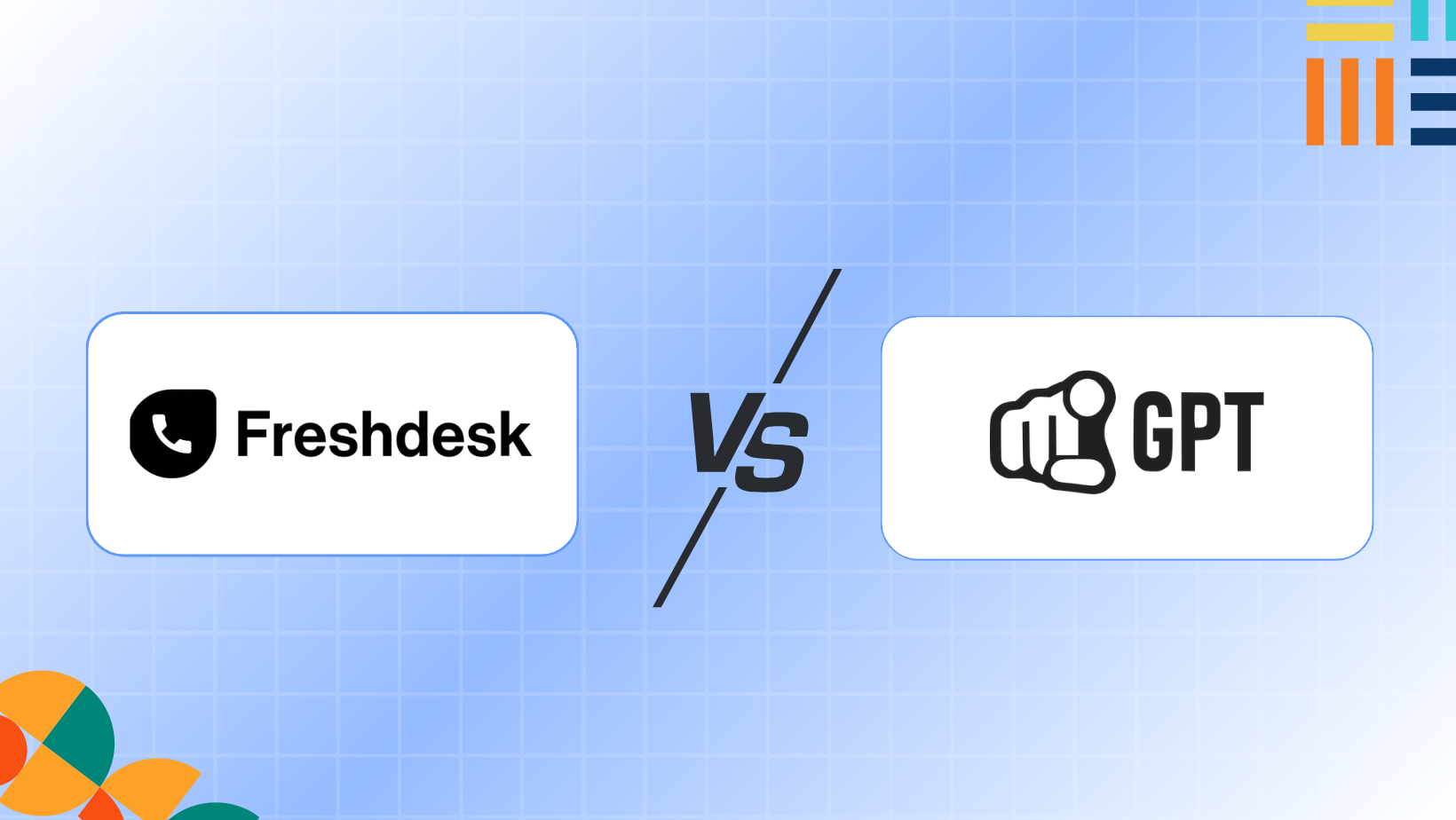
TL;DR: The Core Difference YourGPT Built around AI agents that handle conversations, run workflows, and resolve issues on their own across channels. The goal is to reduce incoming support volume by solving problems before they reach a human. Freshdesk Built around structured ticketing. It focuses on organizing queues, managing SLAs, and tracking agent performance. Humans […]


TLDR Zendesk works well for ticket-based support, but it can feel limiting as teams rely more on automation and multi-channel conversations. This guide compares 7 practical Zendesk alternatives that reduce manual handling and let AI manage common requests across chat and messaging tools Zendesk is one of the popular customer support platform has been around […]

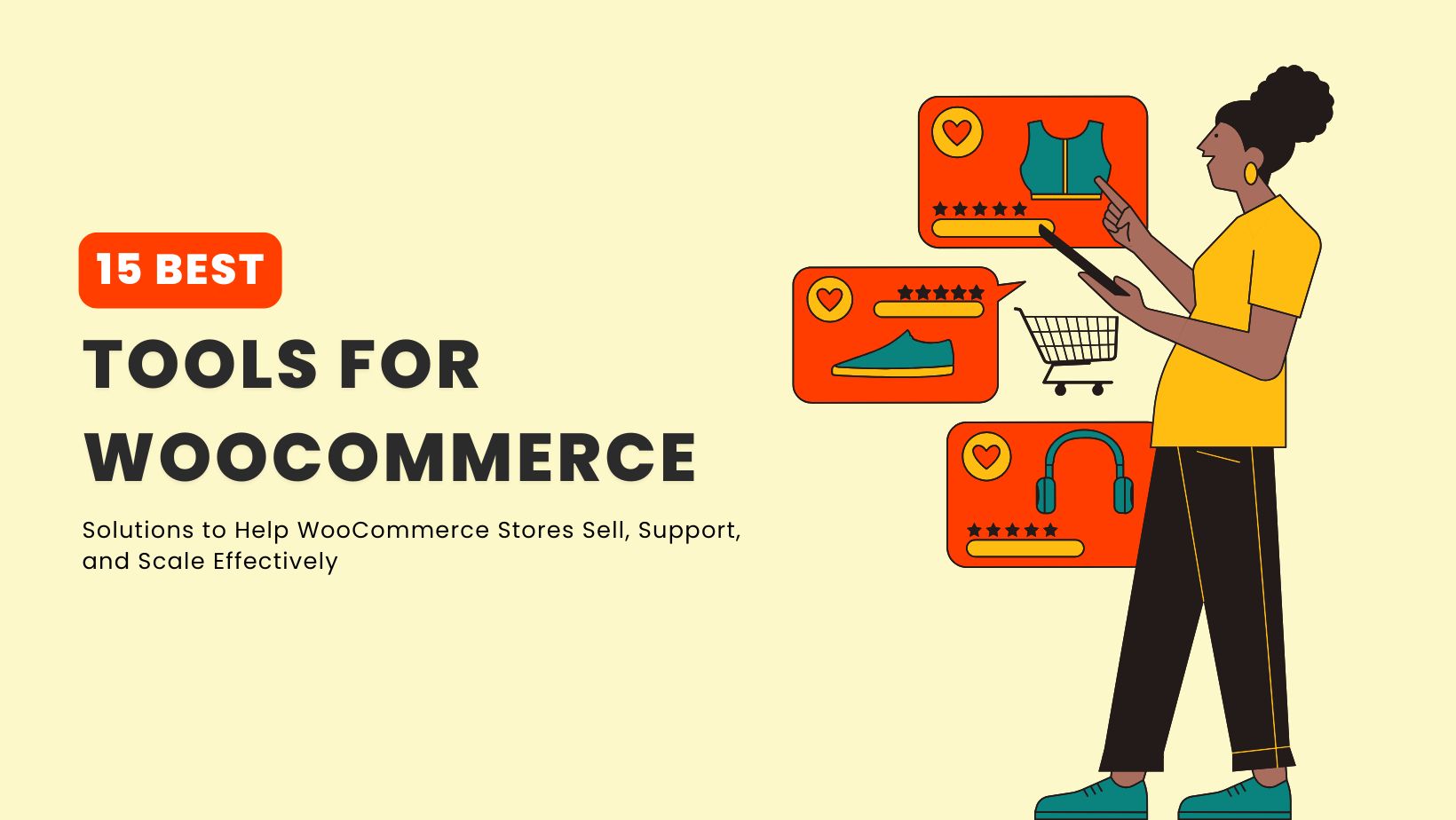
WooCommerce gives store owners flexibility, but that flexibility comes with trade-offs as a store grows. Over time, pages slow down as plugins accumulate, carts get abandoned without obvious reasons, and customer questions start consuming more time than expected. These issues rarely appear all at once, but they compound quickly and directly affect revenue. After working […]

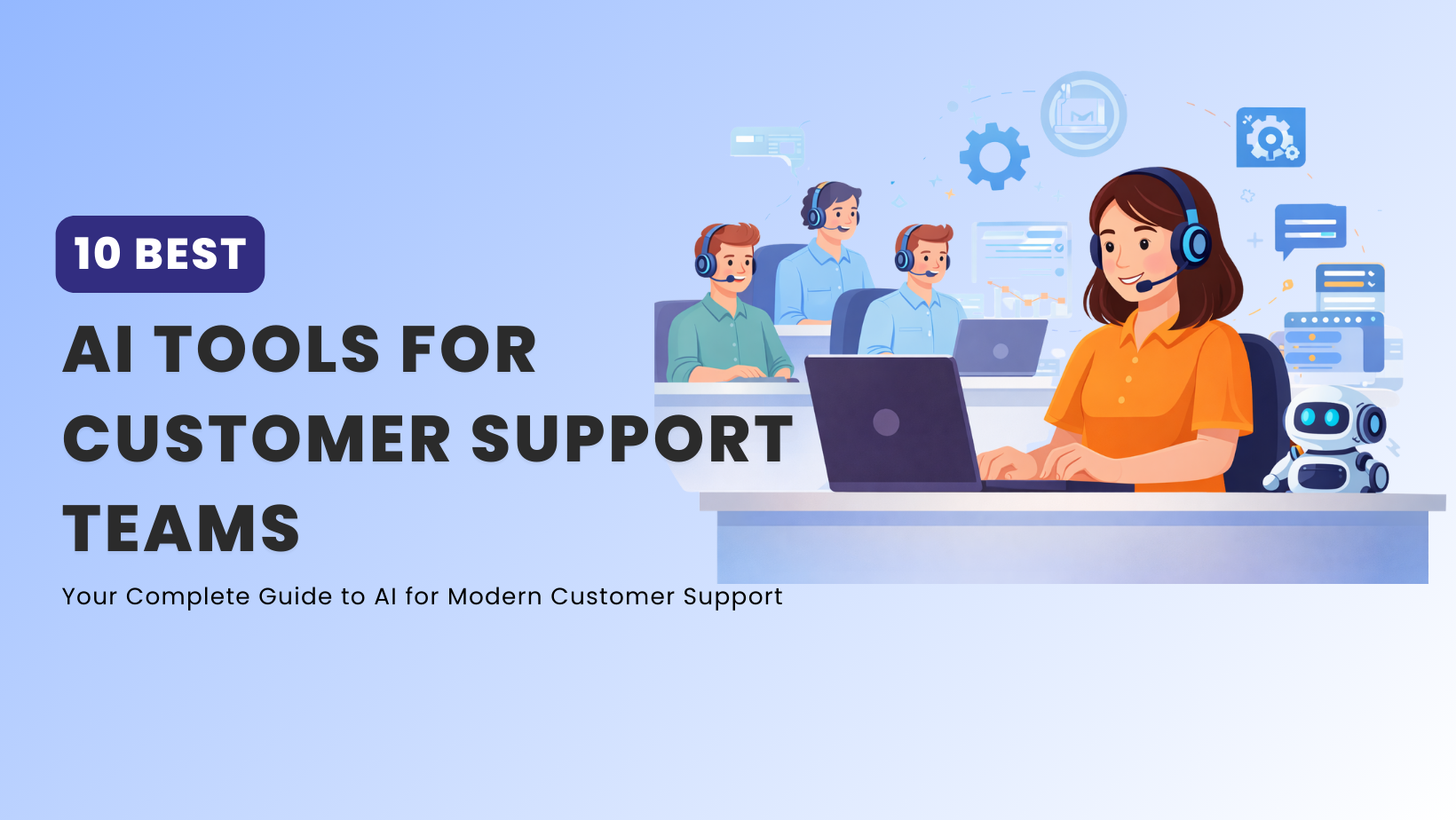
AI customer support tools now form a core part of how many teams handle growing contact volumes and rising customer expectations. At the same time, the market has become crowded, with many similar-looking products and overlapping claims, which makes evaluation harder for support leaders. The AI customer service segment grew from about $12 billion in […]

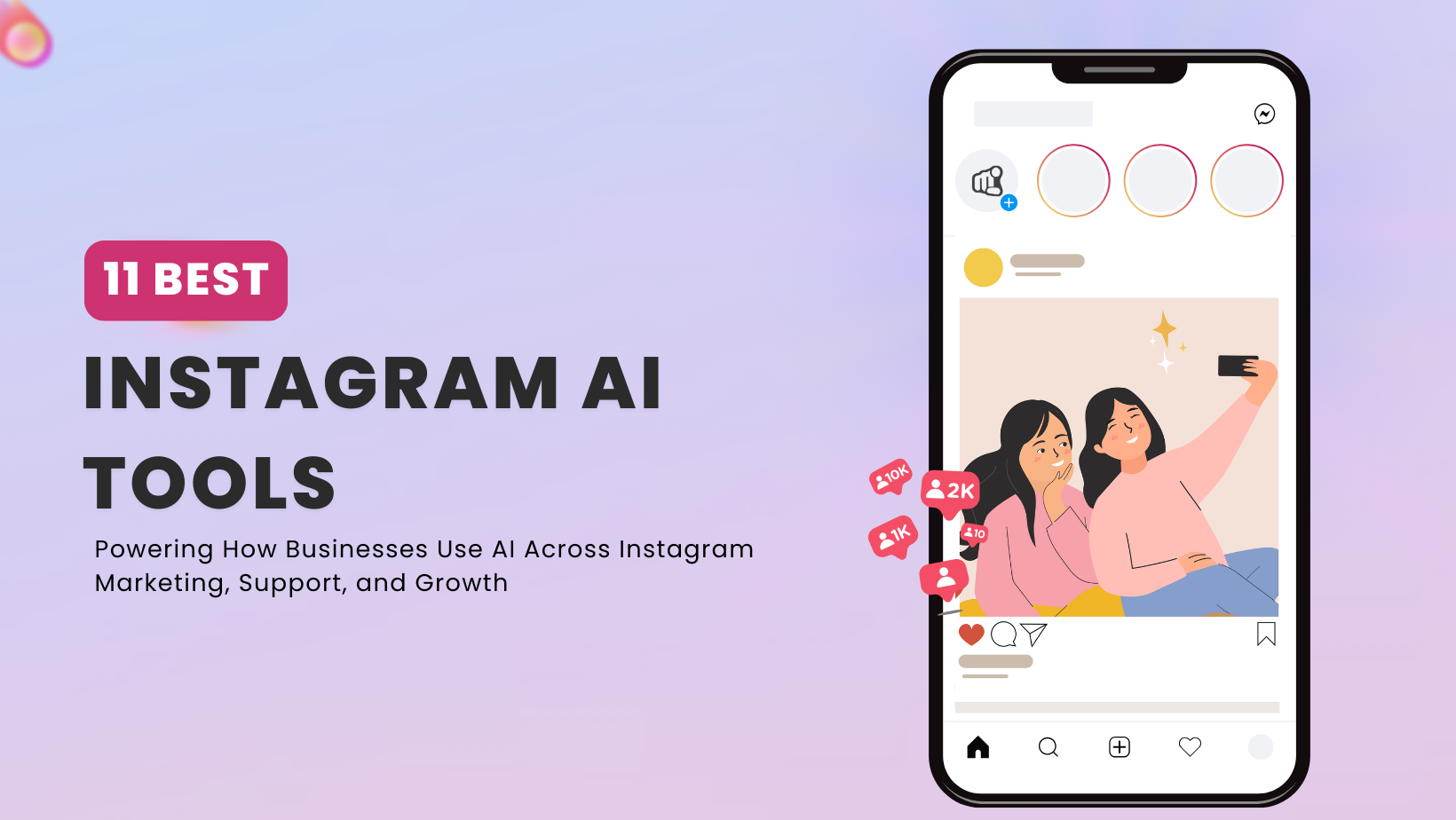
If you run an Instagram account for business in 2026, you already feel the pressure. The platform has 2 billion monthly users now. About 44% of people on Instagram shop every week, and most expect you to reply to their messages in under an hour. Between creating posts, Stories, and Reels, answering DMs, responding to […]

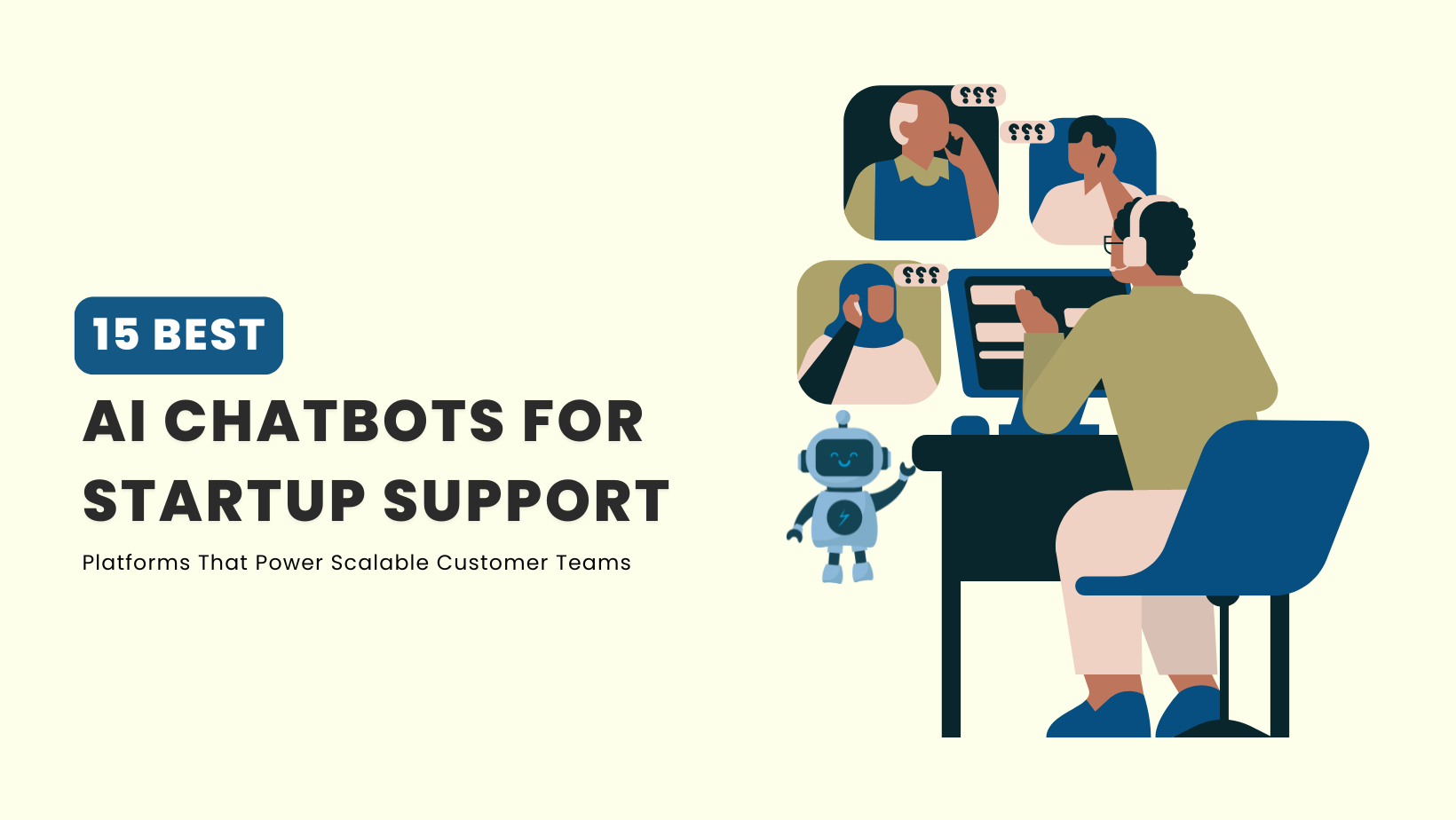
TL;DR Growing startups struggle with rising support volume and limited teams. AI chatbots automate repetitive queries, keep responses consistent, and scale support without extra headcount. Based on 48+ hours of our testing, we evaluated platforms across setup time, accuracy, AI capability, pricing transparency, and real-world performance for startups. AI chatbots help startups manage customer support […]
